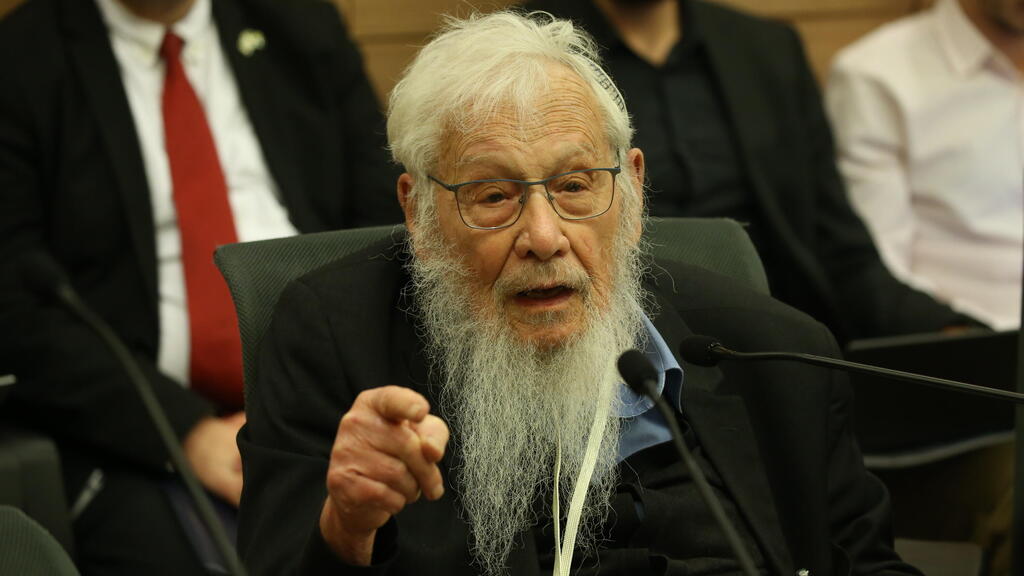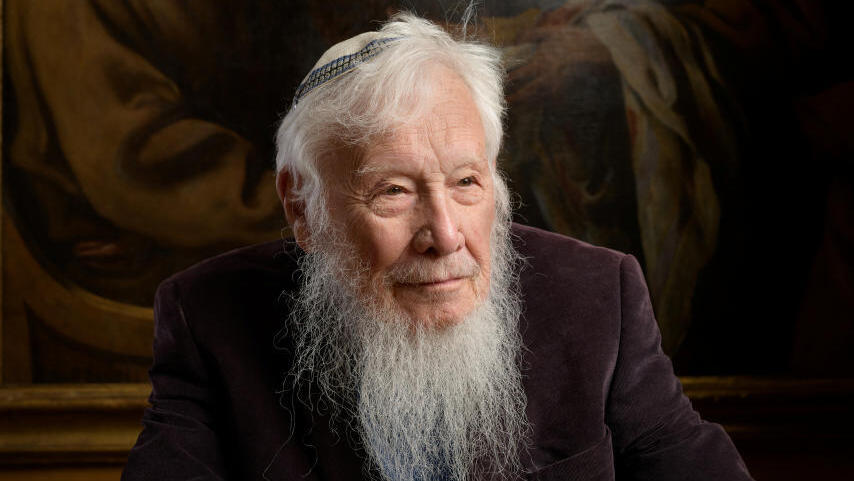An Israeli Nobel Prize winner on Sunday came out with a rare show of support for the planned judicial reform, which has been driving thousands of Israelis to the streets in weekly anti-government rallies.
Prof. Yisrael Aumann was awarded the Nobel Prize in Economics in 2005 for his work in expanding the study of game theory.
"The opponents of the reform claim the judiciary supports democracy, but the opposite is true,” he said. "The courts and judicial system maintain an ongoing dictatorship, they can decide whatever they want and nothing can stop them."
What do you think of President Isaac Herzog’s plan for a dialogue?
"A compromise in the spirit of the president's plan is a good possibility. There are certain things that can be compromised on. My position is not necessarily like that of Simcha Rothman and [Justice Minister] Yariv Levin's. They aren’t willing to stop the legislation, but they’re willing to listen and talk as long as the legislation continues."
Do you support the change in the composition of the judges' selection committee?
"This is the most important section of the reform in my opinion. Today, judges have a very decisive power in the committee, and anyone who doesn’t follow the ideology and values of the judiciary fails.”
“Judges are elected by political bodies in many countries, and I think it wouldn't be terrible if the coalition had a decisive voice in the committee. In any case, there are 15 judges and only four may be replaced in the coming years, so there is no need to fear that the court will suddenly become a dictatorship."
What about the override clause and the barring of the judiciary from reviewing laws?
"Invalidating a law should be possible, but not as easily as it’s done now. Today, a panel of three judges can invalidate a law passed by the Knesset, when two judges are in favor and one is against, and this needs to be changed.
“It’s appropriate that the judicial system is able to strike down laws on the one hand, but on the other, it must be taken seriously, and with a decisive majority of judges. Today, there’s no authority that can override the judiciary and the attorney general, who should serve the government, not the judiciary.”
What do you think is the main issue with the judiciary today?
"The fact that the judiciary takes positions that aren’t in line with the majority of the people in Israel, as was evident in the last elections, is something that needs to change. Democracy is not just about individual rights, it’s about the rule of the many, not the legal elite only.”
What do you think about warnings that the reform will harm Israel’s economy?
"There’s nothing in the reform that can hurt the economy. On the contrary, it can strengthen the economy once the judiciary has no intervention in the business sector. What can do harm is if reputable economists continue to go against the reform, scaring sway investors. This is what is damaging the economy."




